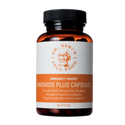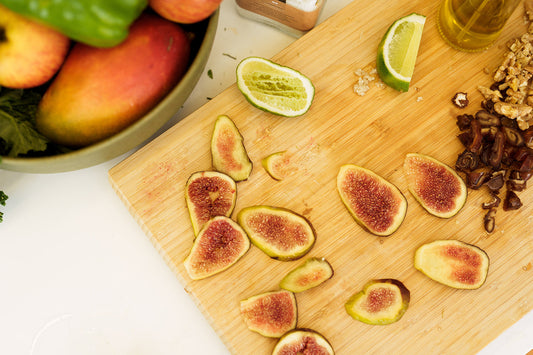Hair is often seen as a symbol of vitality, beauty, and confidence. When it is strong, thick, and shiny, it reflects not just good grooming but also internal health. Conversely, thinning, breakage, or dryness can signal deeper imbalances in the body.
Dr. Sebi taught that healthy hair starts from within. Rather than relying solely on shampoos, oils, or external treatments, he emphasized that the roots of hair health lie in the blood. By nourishing the blood with alkaline foods and herbs, we provide the minerals and hydration necessary for hair follicles to thrive.
This article explores the connection between diet and hair growth, the role of minerals, and the best alkaline foods from the Nutritional Guide to support strong, beautiful hair.
Why Hair Health Depends on Inner Balance
Hair is made primarily of a protein called keratin, but its growth is fueled by minerals, circulation, and overall vitality. The scalp and follicles are nourished by the bloodstream, meaning that deficiencies or imbalances in the blood quickly show up in hair health.
Common Causes of Poor Hair Growth
-
Mineral deficiencies: Lack of iron, zinc, silica, and magnesium weakens follicles.
-
Excess mucus: Clogs circulation, reducing nutrient delivery to the scalp.
-
Stress and hormones: Cortisol and imbalanced reproductive hormones cause shedding.
-
Acidic diet: Depletes minerals and inflames the body, leading to brittle, thinning hair.
-
Poor hydration: Dry cells lead to dry, lifeless hair.
The Role of Minerals in Hair Growth
-
Iron: Supports oxygen delivery to follicles, preventing hair loss.
-
Silica: Strengthens connective tissue and improves hair thickness.
-
Magnesium: Reduces inflammation and stress-related shedding.
-
Zinc: Essential for protein synthesis and follicle repair.
-
Calcium & Phosphorus (in balance): Support cellular energy and growth.
Dr. Sebi taught that iron is the most crucial of all, as it acts like the “spark plug” of the body, igniting energy and enabling other minerals to be absorbed.
Best Alkaline Foods for Hair Health (from Nutritional Guide)
Leafy Greens
-
Dandelion greens: Rich in iron and calcium, they cleanse the blood and nourish follicles.
-
Kale: Packed with minerals and chlorophyll, which oxygenates the scalp.
-
Amaranth greens: High in magnesium and iron, supporting growth and strength.
-
Watercress: Mineral-dense and excellent for circulation.
Fruits
-
Berries (blueberries, blackberries, strawberries, raspberries): High in antioxidants, protect follicles from damage, and boost collagen.
-
Seeded grapes: Rich in resveratrol and hydration, improve blood flow to the scalp.
-
Figs and dates: Supply iron, potassium, and natural sugars for energy.
Vegetables
-
Cucumbers: Excellent source of silica for strong connective tissue.
-
Squash & zucchini: Provide minerals and hydration for scalp health.
-
Cherry tomatoes: Rich in vitamin C, supporting collagen and iron absorption.
Grains
-
Quinoa: Provides protein and iron for keratin production.
-
Spelt: Mineral-rich grain that supports energy metabolism.
-
Wild rice: High in fiber and minerals, keeps digestion smooth for better nutrient absorption.
Nuts & Seeds
-
Walnuts: Provide omega fatty acids to strengthen and moisturize hair.
-
Sesame seeds (tahini): Rich in calcium and zinc.
-
Hemp seeds: Balanced protein and healthy fats for follicle repair.
Herbs
-
Burdock root: Known for supporting skin and hair health by cleansing the blood.
-
Chamomile: Calms the nervous system, reducing stress-related shedding.
-
Elderberry: Antioxidant-rich, protects against follicle damage.
How Alkaline Foods Promote Hair Growth
-
Cleansing the Blood: Burdock, dandelion, and leafy greens remove waste that clogs follicle nutrition.
-
Improving Circulation: Grapes, ginger, and watercress deliver oxygen and minerals to the scalp.
-
Strengthening Connective Tissue: Cucumbers (silica) and quinoa (protein) provide the building blocks for hair structure.
-
Hydrating Cells: Melons, seeded fruits, and spring water keep follicles moist and active.
-
Balancing Hormones: Herbs like chamomile and tila reduce stress hormones that trigger hair loss.
Practical Meal Ideas for Hair Health
Breakfast
-
Quinoa porridge with figs, hemp seeds, and blueberries.
-
Elderberry tea.
Lunch
-
Wild rice with sautéed kale, zucchini, and cherry tomatoes.
-
Dandelion greens & arugula salad with olive oil, sea salt, and lime.
Snack
-
Seeded grapes with walnuts.
-
Chamomile tea.
Dinner
-
Spelt wrap with amaranth greens, squash, and avocado oil.
-
Cucumber and watercress salad.
Lifestyle Practices That Support Hair Growth
-
Hydration: Drink spring water daily to keep cells nourished.
-
Stress Management: Herbal teas, breathwork, and meditation reduce cortisol-driven shedding.
-
Sleep: Deep rest supports hormonal balance and repair.
-
Scalp Care: Gentle massage improves circulation and nutrient delivery.
-
Avoid Acidic Foods: Dairy, meat, refined sugar, and hybrid starches deplete minerals and worsen shedding.
FAQs
Q: Can alkaline foods reverse baldness?
A: While genetics play a role, many cases of hair thinning improve significantly when the body is cleansed and nourished.
Q: How long does it take to see results?
A: Some notice stronger, shinier hair in weeks; deeper regrowth may take months of consistency.
Q: Are topical treatments necessary?
A: They can help temporarily, but true results come from nourishing the blood and follicles internally.
Q: Can children benefit from these foods for hair health?
A: Yes. Leafy greens, fruits, and grains support healthy hair growth in children as well.
Dr. Sebi’s Perspective
Dr. Sebi taught that hair health reflects blood health. When the blood is rich in iron and minerals, hair grows strong. When it is filled with mucus and toxins, hair becomes weak and falls out. His approach was always to purify the blood first and then nourish it with alkaline minerals.
Burdock root, dandelion greens, and cucumbers were among his key recommendations for supporting healthy skin, nails, and hair. He saw these not as cosmetic aids but as part of a holistic lifestyle of vitality.
Conclusion
Healthy hair does not come from external treatments alone. It comes from clean blood, mineral-rich foods, and balanced hormones. By embracing alkaline foods—leafy greens, seeded fruits, cucumbers, quinoa, walnuts, and herbs like burdock—we provide the nourishment hair follicles need to grow strong.
When we shift to the alkaline lifestyle, cravings fade, energy rises, and even our hair reflects the vitality within. As Dr. Sebi taught, true beauty begins in the blood, and hair is one of its clearest expressions.


















































